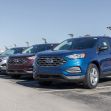On Monday, November 23, 2020, the National Highway Traffic Safety Administration (NHTSA), ordered GM to recall and repair approximately seven million vehicles that contain Takata airbag inflators. Though GM strenuously insisted that the inflators in question do not pose a threat, they agreed to abide by NHTSA’s decision and make the recall.
The inflators at issue are metal cartridges loaded with wafers that act as propellants. In some cases, defective inflator cartridges have caused the metal housing to blow apart, resulting in flying metal shards which caused serious injuries and death. To date, in the U.S. 17 people have died and more than 200 have been injured. Worldwide, there’ve been 25 deaths and 300 injuries.
Takata, the Japanese company that made the airbags and inflators, filed for Chapter 11 bankruptcy in June of 2017 after its inflators were the cause of the biggest auto industry recall to date. The company was acquired by Key Safety Systems in 2018. The acquisition was structured so that Takata would continue to produce replacement inflators before it winds down, even though such a process was expected to take years.
The dispute between GM and NHTSA has been going on since before the initial recalls of 2014. Since then, GM has recalled nearly 800,000 vehicles containing Takata airbags. GM said, “Although we believe a recall of the vehicles is not warranted based on the factual and scientific record, NHTSA has directed that we replace the airbag inflators in the vehicles in question. Based on data generated through independent scientific evaluation conducted over several years, we disagree with NHTSA’s position.”
NHTSA's research showed that the Takata inflators use an ammonium-nitrate based propellant without a chemical drying agent. Environmental moisture, age, and high temperatures, together with the defect, can cause the bags to improperly inflate. NHTSA says the inflators seem to be vulnerable to continuous high humidity and temperatures in places they have designated as “Zone A.” Zone A includes Alabama, California, Florida, Georgia, South Carolina, the Gulf Coast States, Hawaii, and other island locations.
Although the Takata airbags have deployed improperly in other zones, the environmental conditions in Zone A make Takata airbags in those areas more susceptible to accidental inflation. Replacement parts are being sent to high-humidity areas first, as quickly as they can be acquired.
Takata said it was aware of 67 ruptured driver’s side bags and 21 passenger’s side bags during what it calculated to be 1.2 million airbag deployments over 15 years. Airbags in general are not dangerous. The Department of Transportation estimates that airbags have saved 37,000 lives between 1987 and 2012.
In 1970, the National Highway Safety Bureau was created when President Lyndon Johnson signed the National Traffic and Motor Vehicle Safety Act and the Highway Safety Act into law. Four years after that, NHTSA was established to carry out safety programs under the National Traffic and Motor Vehicle Safety Act of 1970.
GM’s recall will affect nearly seven million vehicles worldwide and will cost them upwards of $1.2 billion this year, and $400 million next year, plus additional funds into the future.
To check whether your car is on the recall list, click here.






